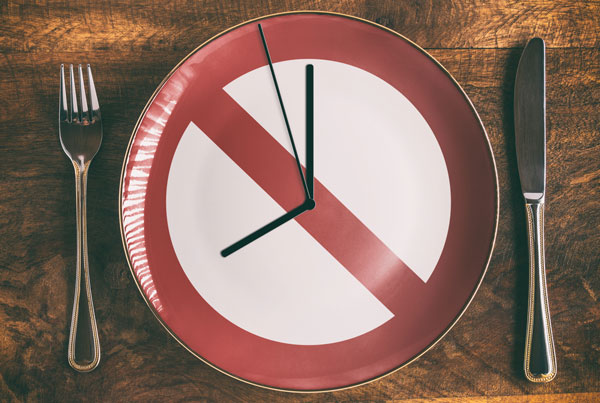Keto, Fasting, and More
What Is Intermittent Fasting?

Things I Wish I’d Known Before Getting Into Intermittent Fasting
Here’s what I wish I’d known before starting and tips I tell those who ask me about getting started with intermittent fasting.
- Choose a Plan That Fits Your Lifestyle
There are several types of intermittent fasting:
- 16/8 (fast for 16 hours, eat for eight)
- 5:2 (drastically limit your calories 2 days a week and eat regularly the other 5)
- 20/4 the Warrior Diet (eat four hours, fast for 20).
Give them a try and see what works for you and seems effortless. Find a plan that works with your schedule and lifestyle. If you plan to adopt intermittent fasting as a long-term eating regimen pick a plan you can stick to. Finding your particular sweet spot may take some time, so be open and flexible when trying different fasting and eating windows.
- For More Success Ease Into It Gradually
It’s not necessary to push yourself the first day. Feel free to work your way up to it. Delay your breakfast 30 minutes, then an hour, and so on. It may take you couple weeks to skip breakfast to comfortably. A gradual approach to lengthening your fasting window will protect you from issues like headaches, dizziness, low energy, and general sadness about not eating.
- Fasting Doesn’t Suck
You hear jokes and negative things about fasting all the time. It may scare you and leave you reluctant to try it because you imagine it would be terrible. How will you get through the workday and not lash out at co-workers or your kids because you’re angry?
Truthfully, fasting does suck for the initial 4 to 7 days, but your body quickly adjusts. After the first week or two, you’ll feel amazing with great mental clarity and focus and have much more energy (eating leaves many feeling tired afterward). You’ll feel light and won’t have to think about food.
Ironically, not eating tends to curb your hunger for the rest of the day. Many folks want to eat all day long. Fasting can make you feel fuller on a smaller amount of food and keeps you feeling fuller for longer periods of time.
- Drink Lots of Water
During the first half an hour after getting up, drink at least 12 oz of water. If hunger pangs persist, drink an additional 12 ozs or more. Intermittent fasting teaches many what they thought was hunger is thirst or boredom. Drinking plenty of water during the day keeps your belly full, helps you stay alert, and fills that need or habit of having to put something in your mouth.
Drinking tea, black coffee, or sparkling water helps too, but avoid those zero-calorie energy drinks. A cup of coffee or tea around 9:30 or 10 AM when you feel a little hungry will kill your hunger immediately. You can keep your mouth busy by chewing gum. For those of you who quit smoking in the past, all of this probably sounds familiar.
- Do Your Research!
Reading articles and watching YouTube videos on intermittent fasting will reinforce your decision to try it. You will learn all the benefits of IF, and get excited. If family or friends give you a hard time you can tell them how intermittent fasting may prevent diseases (Alzheimer’s), increase lifespan, improve digestion, prevent belly bloat, and help you get a handle on food addiction or issues with overeating.
- Keep Busy
On the first day of intermittent fasting, you might feel great. Trying something new gives you a high, and in a fasted state, you’ll experience increased clarity and energy. Unfortunately, on days 2 through 4, you may feel like you’ve sunk into hell. Thoughts of doubt, feelings of sadness, rage, and daydreams of bottomless bowls of macaroni and cheese will have you asking ‘what was I thinking?’ and ‘what am I doing?’
The optimum course is to keep busy. Pick a jam-packed busy day or week to start intermittent fasting. A suggestion is to pick a travel day because a several hour plane ride allows you to read, sleep and watch movies most of the time without being bombarded with images of food or the temptation to eat.
- Avoid doing things that involve food:
- Stay out of the kitchen
- Stay away from grocery stores and restaurants
- Avoid watching TV shows, the food ads would drive you crazy
- Avoid watching others eat, prepare food, or browse online for recipes for tomorrow’s dinner
- Don’t Just Eat Salad
If you’re practicing intermittent fasting to lose weight, recent research says you can eat whatever you want and still manage to lose weight. Fewer eating hours in the day makes it easier to create a calorie deficit or sustain ketosis, but losing weight isn’t automatic.
One trick to avoid binging on the first meal (and during the rest of your eating window) is to eat some protein and fats and a handful of nuts. It will take the edge off your hunger, then you can eat a big meal about 30 to 60 minutes later. Eat slowly, really enjoy and savor it. You’ll find it easy to stop when you feel full.
- Don’t Overdo It
If you’re doing intermittent fasting to lose weight, Some research says you can eat whatever you want and still manage to lose weight. Fewer eating hours in the day makes it easier to create a calorie deficit or sustain ketosis, but losing weight isn’t automatic.
One trick to avoid binging on the first meal (and during the rest of your eating window) is eating some protein and fats and a handful of nuts. It will take the edge off your hunger, then you can eat a big meal about 30 to 60 minutes later. Eat slowly, really enjoy and savor it. You’ll find it easy to stop when you feel full.
- Go Easy on the Workouts
The only time many can exercise is early in the morning, which means getting up really early. This puts you in the position of coming home from the gym and eating by 8 a.m. many find it impossible to wait until noon to eat. All they can think about is food, so they fudge and eat.
You might want to take some time off from your exercise regimen in the beginning just to get your body gets used to fasting.


